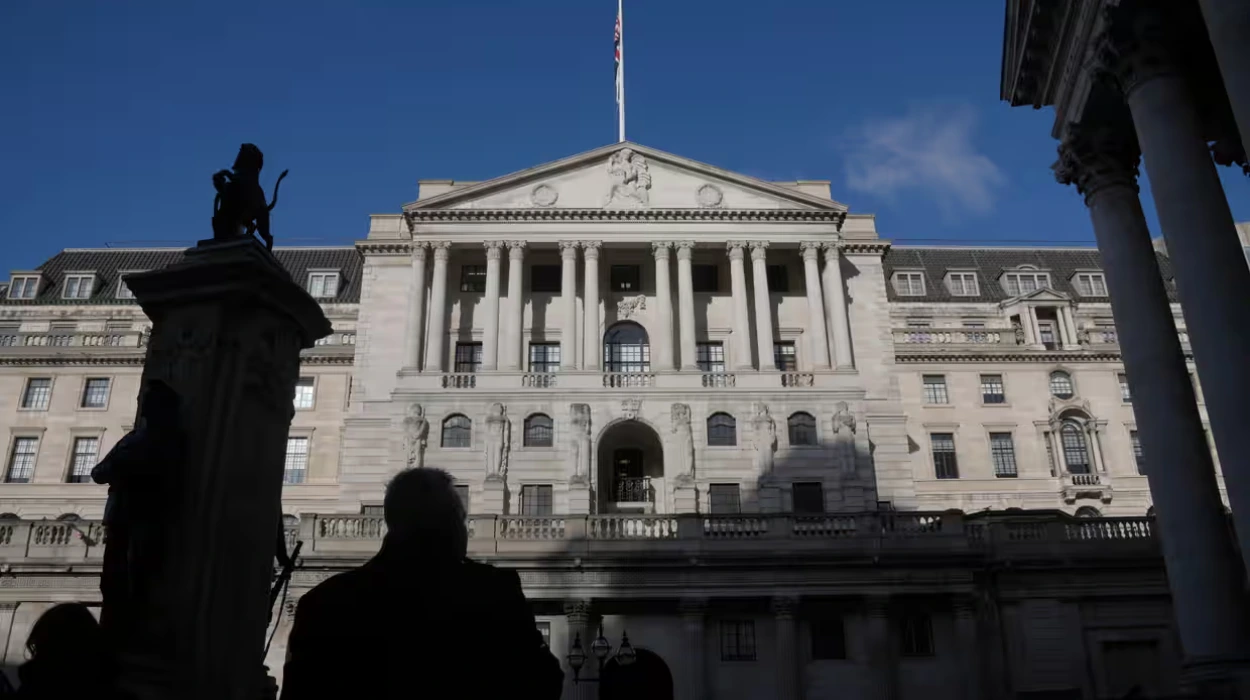UK (Parliament Politics Magazine) – Chancellor Rachel Reeves welcomes the interest rate reduction by the Bank of England but faces setbacks with downgraded growth projections and rising inflation.
Rachel Reeves has gained support for her economic growth plan following the Bank of England’s interest rate reduction, but the impact is offset by new inflation warnings.
Will interest rate cuts offset growth downgrades and rising inflation?
On Thursday, the Bank of England’s interest rates are now set at 4.5%, while slashing Britain’s growth forecast downwards and warning of an increased financial difficulty period for households.
As the government faces criticism over the slow economy, the Bank’s Monetary Policy Committee voted 7-2 to lower its base rate from 4.75% to offer some financial relief to borrowers.
While businesses gain ease from the interest rate cut, homeowners with £300,000 tracker mortgages will see a monthly payment reduction of £43, lowering from £1,710 to £1,667.
In a setback for the Chancellor, growth forecasts have been cut in half due to extra NHS spending in Ms Reeves’ last budget, and now inflation is expected to climb to 3.7%, higher than earlier predictions.
Will the chancellor’s economic plan be enough to overcome current challenges?
After seven months of struggling with disappointing economic figures and mounting rumours about her position, Ms Rachel has finally received a piece of good news of interest rate cut by the Bank of England.
Following her major speech in Offshore last week, where she doubled down on her economic growth strategy, revealing plans for large-scale construction projects nationwide, like a Heathrow expansion.
The Chancellor received support from Downing Street, pledging she would remain in the role through the current Parliament.
How did Shadow Chancellor Mel Stride and the Liberal Democrat Treasury respond to the interest rate cut?
Shadow Chancellor Mel Stride acknowledged that while the interest rate cut would be “welcome news for families and businesses hit hard by Labour’s appalling mismanagement, the Bank of England has stated that growth is weaker than expected, confidence is falling, and Labour’s Budget is fueling inflation.”
Daisy Cooper, Liberal Democrat Treasury spokesperson, warned that it is a “wake-up call” for the chancellor, urging her to reverse the “misguided national insurance hike” on employers and to drop her opposition to negotiating a bespoke UK-EU Customs Union.
What did the Bank of England’s governor say about the interest rate?
Andrew Bailey, The bank’s governor stated, “It will be welcome news to many that we have been able to cut interest rates again today.”
He added,
“We’ll be monitoring the UK economy and global developments very closely and taking a gradual and careful approach to reducing rates further.”
Mr Bailey said a stable and low inflation rate is essential for a strong economy, which is the central bank’s responsibility.
What did Trade Union Congress General Secretary Paul Nowak say about interest rate deduction?
Paul Nowak, general secretary of TUC stated,
“This rate cut is badly needed to help lift the economy out of stagnation. The Bank must now keep moving with further cuts to support households and businesses in the months ahead.”
He said reducing interest rates will ease financial pressure on households, giving families more flexibility in their weekly expenses and increasing consumer spending.
What warnings have business groups raised about national insurance hikes?
Business associations have warned that Labour’s proposed £25bn rise in national insurance contributions (NICs) and a 6.7% rise in the minimum wage from April would force firms to cut jobs or increase prices.
This month, Ms Reeves faces scrutiny over increasing government borrowing costs, driven by prolonged rate projections in the UK and the US.


